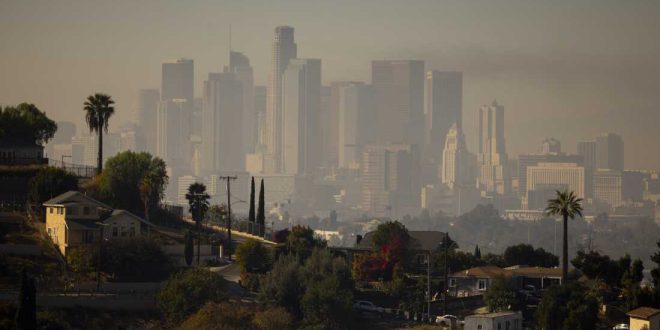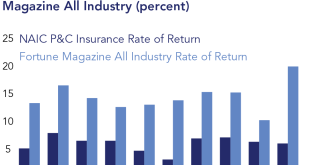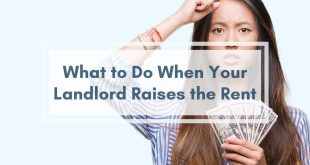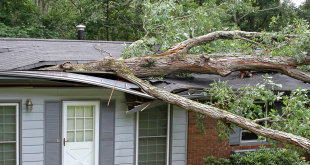Are you a homeowner? Then you’ve probably noticed something alarming lately: your homeowners insurance bill. It’s likely gone up, and maybe by a lot! It’s not just you; millions across the country are seeing these price hikes, and it’s getting to the point where people are starting to wonder if they can even afford to keep their homes insured. It’s a scary thought, leaving you vulnerable to everything from a kitchen fire to a tornado. Let’s dive into why this is happening and what, if anything, can be done about it.
The Rising Cost of Homeowners Insurance: Why Now?
So, what’s behind these crazy increases? It’s not one simple thing, unfortunately. It’s more like a perfect storm of factors all hitting at once. Kinda like that time I tried to bake a cake and managed to set off the smoke alarm, flood the kitchen, and undercook the cake. Yeah, a perfect storm.
Increased Frequency and Severity of Natural Disasters
Think about the headlines you’ve seen lately. More hurricanes, bigger wildfires, stronger storms. It’s not your imagination; natural disasters are on the rise, and they’re causing more damage than ever before. Insurance companies are having to pay out more claims, and to cover those costs… well, you guessed it, they raise premiums. It’s a pretty direct line, isn’t it? Makes you wonder if we should all be investing in Noah’s Ark 2.0.
Reinsurance Costs and Their Impact
Here’s something you might not know: insurance companies themselves have insurance! It’s called reinsurance, and it’s how they protect themselves from catastrophic losses. But guess what? Reinsurance companies are also raising their rates, for many of the same reasons we’ve already discussed. And when reinsurance costs go up, that cost gets passed down to…yep, you.
Inflation and the Cost of Building Materials
Remember when lumber prices went through the roof a while back? (I swear, it felt like overnight!) Well, inflation is still a factor, and the cost of building materials is still higher than it used to be. So, when a home needs to be repaired or rebuilt after a disaster, it costs more. And that higher cost translates to higher insurance premiums. It all adds up, doesn’t it?
Legal and Regulatory Challenges
Insurance companies aren’t exactly operating in a completely free market. They’re subject to regulations, and they sometimes face legal challenges. These things can add to their costs, which, again, can lead to higher premiums. It’s a complex web, that’s for sure. Honestly, sometimes I feel like I need a law degree just to understand my own insurance policy!
Who is Most Affected by These Price Hikes?
Okay, so prices are going up. But who’s really feeling the pinch? It’s not exactly affecting everyone equally, is it?
Low-Income Homeowners and the Affordability Crisis
For low-income homeowners, these price hikes can be devastating. It can mean choosing between paying for insurance and paying for food or medicine. It’s a truly awful situation, and it’s forcing some people to go without insurance altogether, which is, frankly, terrifying.
Homeowners in High-Risk Areas (e.g., Coastal Regions, Wildfire Zones)
If you live in a coastal area prone to hurricanes, or in a wildfire zone, you’re probably already paying a lot for insurance. These price hikes are just making things even worse. Some insurers are even refusing to cover homes in these areas at all, which is leaving homeowners with very few options.
Seniors on Fixed Incomes
Seniors living on fixed incomes are particularly vulnerable to these increases. They often can’t afford to absorb the higher costs, and they may not have the resources to make their homes more disaster-resistant. It’s a real worry for a lot of older folks.
First-Time Homebuyers
Buying your first home is already a huge financial undertaking. These rising insurance costs are just adding another layer of difficulty, potentially pricing some first-time buyers out of the market altogether. I remember how stressed I was buying my first place; if insurance was even more expensive then, I might have just stayed in my apartment!
The Consequences of Unaffordable Homeowners Insurance
What happens when people can’t afford insurance? It’s not just a personal problem; it has wider consequences.
Increased Number of Uninsured Homes
The most obvious consequence is that more homes are going uninsured. This leaves homeowners financially vulnerable, and it also puts a strain on government resources when disaster strikes. Who picks up the pieces when someone loses everything and has no insurance?
Economic Impact on Local Communities
When people can’t afford to insure their homes, it can lead to a decline in property values. This can hurt local economies and make it harder for communities to recover after a disaster. It’s a ripple effect that can be quite damaging.
Strain on Government Resources
As mentioned earlier, when more homes are uninsured, the government ends up having to foot the bill after a disaster. This can strain already stretched government resources and potentially lead to higher taxes for everyone. Nobody wants that!
Mortgage Foreclosures and Property Value Decline
If you can’t afford insurance, you might not be able to keep up with your mortgage payments. This can lead to foreclosure, which can devastate families and further depress property values in the area. It’s a downward spiral that nobody wants to see.
Potential Solutions and Mitigation Strategies
Okay, so it’s all doom and gloom, right? Not necessarily! There are things that can be done to address this crisis.
Government Subsidies and Insurance Pools
Some states are exploring government subsidies to help low-income homeowners afford insurance. Others are creating insurance pools to spread the risk and keep premiums down. These are potential solutions, but they require political will and careful planning.
Strengthening Building Codes and Mitigation Efforts
Making homes more resistant to disasters can also help lower insurance costs. Strengthening building codes and encouraging homeowners to take mitigation measures (like installing hurricane shutters or clearing brush around their homes) can make a big difference.
Exploring Alternative Insurance Options (e.g., Parametric Insurance)
There are alternative insurance options out there, like parametric insurance, which pays out based on the severity of a disaster rather than the actual damage to the home. These options might not be right for everyone, but they’re worth exploring.
Negotiating with Insurance Companies and Seeking Discounts
It might sound obvious, but it’s always worth shopping around and negotiating with insurance companies. Ask about discounts for things like security systems, smoke detectors, and disaster-resistant features. You might be surprised at how much you can save. Hey, every little bit helps, right?
The Future of Homeowners Insurance: What to Expect
So, what does the future hold? It’s hard to say for sure, but here are a few things to keep in mind.
Technological Innovations in Risk Assessment
Technology is changing the way insurance companies assess risk. Things like drones and satellite imagery are being used to get a more accurate picture of a property’s vulnerability to disasters. This could lead to more accurate (and potentially lower) premiums in the future.
The Role of Climate Change in Shaping the Market
Climate change is going to continue to be a major factor in the homeowners insurance market. As natural disasters become more frequent and severe, insurance costs are likely to continue to rise. It’s a sobering thought, but it’s important to be prepared.
Policy Changes and Regulatory Reforms
We may see policy changes and regulatory reforms aimed at addressing the affordability crisis. These changes could include things like government subsidies, stricter regulations on insurance companies, and new types of insurance products.
Adapting to the New Reality of Homeownership
Ultimately, we may all need to adapt to a new reality of homeownership, one where insurance is more expensive and disaster preparedness is more important than ever. It’s not ideal, but it’s the reality we’re facing. We need to get creative and resourceful. Time to dust off that old survival skills handbook, maybe?
It’s a tough situation out there for homeowners, no doubt about it. These rising costs are a real concern, and it’s important to understand why they’re happening and what you can do about it. Hopefully, this has given you some food for thought. Maybe it’s time to shop around for a better rate or start thinking about ways to make your home more disaster-resistant. Either way, stay informed, stay proactive, and don’t get caught off guard. And hey, if you’ve got any tips or tricks for saving on homeowners insurance, feel free to share! We’re all in this together.
 seeme
seeme




